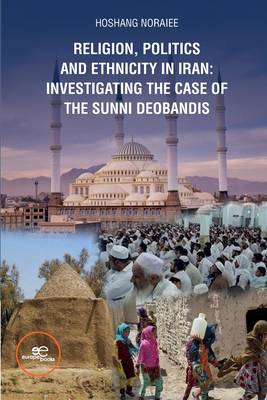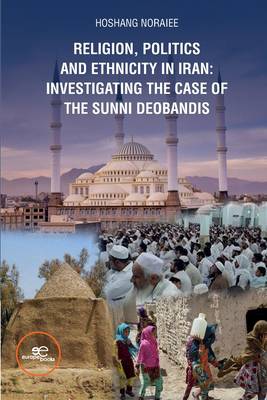
- Afhalen na 1 uur in een winkel met voorraad
- Gratis thuislevering in België vanaf € 30
- Ruim aanbod met 7 miljoen producten
- Afhalen na 1 uur in een winkel met voorraad
- Gratis thuislevering in België vanaf € 30
- Ruim aanbod met 7 miljoen producten
Religion, politics and ethnicity in Iran
investigating the case of the Sunni Deobandis
Hoshang NoraieeOmschrijving
Religion, Politics and Ethnicity in Iran: Investigating the Case of the Sunni Deobandis focuses on the Deobandis, the dominant faction of Sunnis in Baluchistan, who, following the Iranian Revolution of 1979, have responded not only as an ethnic group but also a religious community to define their position amidst changing conditions and a complex range of conflicts and rivalries brought about by a new era under the Islamic Republic of Iran, where the gap between religion and state no longer exists and power has shifted to religious authorities. The author explores the issues of social and political change in Iran since the revolution, the Deobandis' interaction with Shia-dominant government institutions and authorities, as well as their ethnic connection and interaction with other Sunnis in the area. We see how the Sunni Deobandis have built their religious clans as a manifestation of power and prestige and enhanced institutions, such as mosques, madares and educational boards to successfully establish their popularity and become a dominant force in Baluchistan.
Hoshang Noraiee is a London-based author and editor, consultant and independent researcher. Having studied for an MA in Political Economy at Middlesex University he then went on to complete a Ph.D. in Sociology at the University of Warwick. He has lectured in Sociology, International Political Economy and Globalisation at the University of Westminster and the London Metropolitan. He has published several articles and books in both English and Farsi and is also fluent in Baluchi, with a working knowledge of Urdu.
His current research interests include ethnicity, nationalism, globalisation and political Islam.
Specificaties
Betrokkenen
- Auteur(s):
- Uitgeverij:
Inhoud
- Aantal bladzijden:
- 634
- Taal:
- Engels
- Reeks:
Eigenschappen
- Productcode (EAN):
- 9791220121057
- Verschijningsdatum:
- 26/06/2022
- Uitvoering:
- Paperback
- Formaat:
- Trade paperback (VS)
- Afmetingen:
- 140 mm x 210 mm
- Gewicht:
- 948 g

Alleen bij Standaard Boekhandel
Beoordelingen
We publiceren alleen reviews die voldoen aan de voorwaarden voor reviews. Bekijk onze voorwaarden voor reviews.











